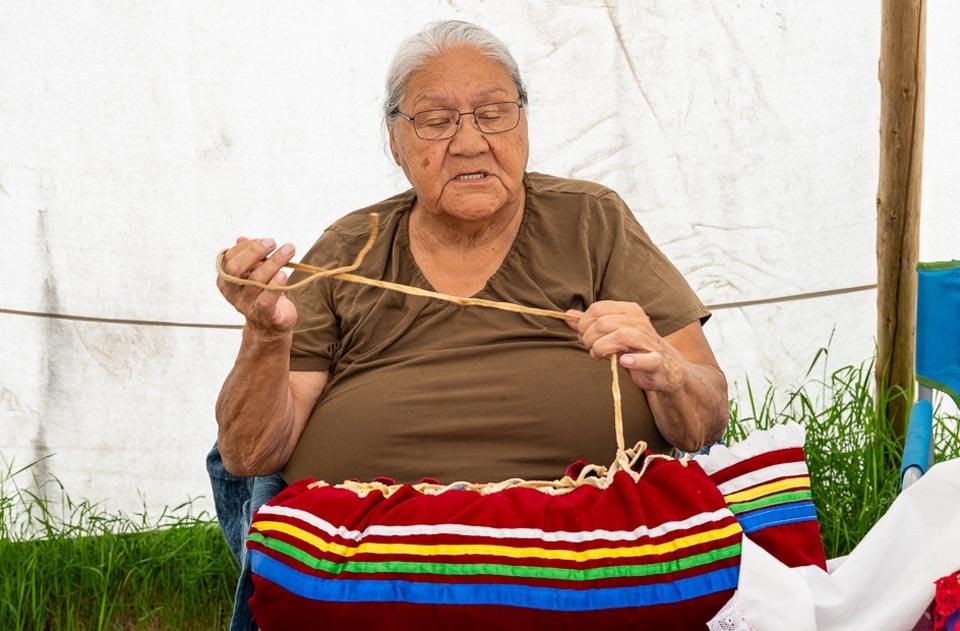NORTH BATTLEFORD — Mary Kahpeaysewat demonstrated a traditional moss bag at the Western Development Museum on July 9 as part of a weekly demonstration called Tipi Teachings — something she knows intimately.
Kahpeaysewat has had 10 children, and every one of them spent their earliest days nestled within a moss bag. “All of mine were in one,” she says with quiet pride.
To Kahpeaysewat, the moss bag is more than a baby wrap. It is a sacred tradition. The bag itself mimics the warmth and safety of the womb. An infant is wrapped snugly in blankets, dressed in a gowns, with their heads supported by a small pillow. The outer layer is tied with leather straps, each one representing the umbilical cord — a symbol in the First Nations culture. A bonnet is used to help the baby’s head form perfectly.
"The leather is like the cord, the connection to the mother,” Kahpeaysewat explains. “We respect that cord. It gives life.”
Inside the bag, moss is placed beneath the baby. It’s not just any moss — it’s hand-gathered during summer, dried and softened. The moss is tucked between layers of a cloth, often flannel, and put between the baby’s legs to act as a natural sponge. It absorbs moisture while keeping the baby dry and comfortable. Only the cloth needs to be washed. “I haven’t heard of a baby getting diaper rash in a moss bag,” Kahpeaysewat adds. A breathable blanket may be used to cover the head.
The moss bag isn’t used alone. The baby often sleeps in a sling, gently swaying in rhythm with every tiny movement. This constant motion is not random — it mirrors the motion felt inside the mother. When a baby cries or feels unwell, the gentle swing comforts and soothes them back to rest.
“Everything from a woman is sacred,” she said. “The placenta is given to an Elder who returns it to the earth. Everything should go back to Mother Earth.”
Kahpeaysewat believes babies need love as much as they need water. “If they’re not cuddled, they might not survive. If you love them, they’ll love you back.”
The knowledge Kahpeaysewat carries is ancient — passed down from Elders long before her. But she believes it still belongs in today’s world. “I hope people will keep using the moss bag,” she says. “Plastic is killing our world, and it’s even used on our babies. We already had better ways.”
The moss bag demonstration is part of the weekly Tipi Teachings demonstrations sponsored by Kanaweyimik and hosted by The Western Development Museum.
The next demonstration will be Hand Games and held on July 17 and 18.




